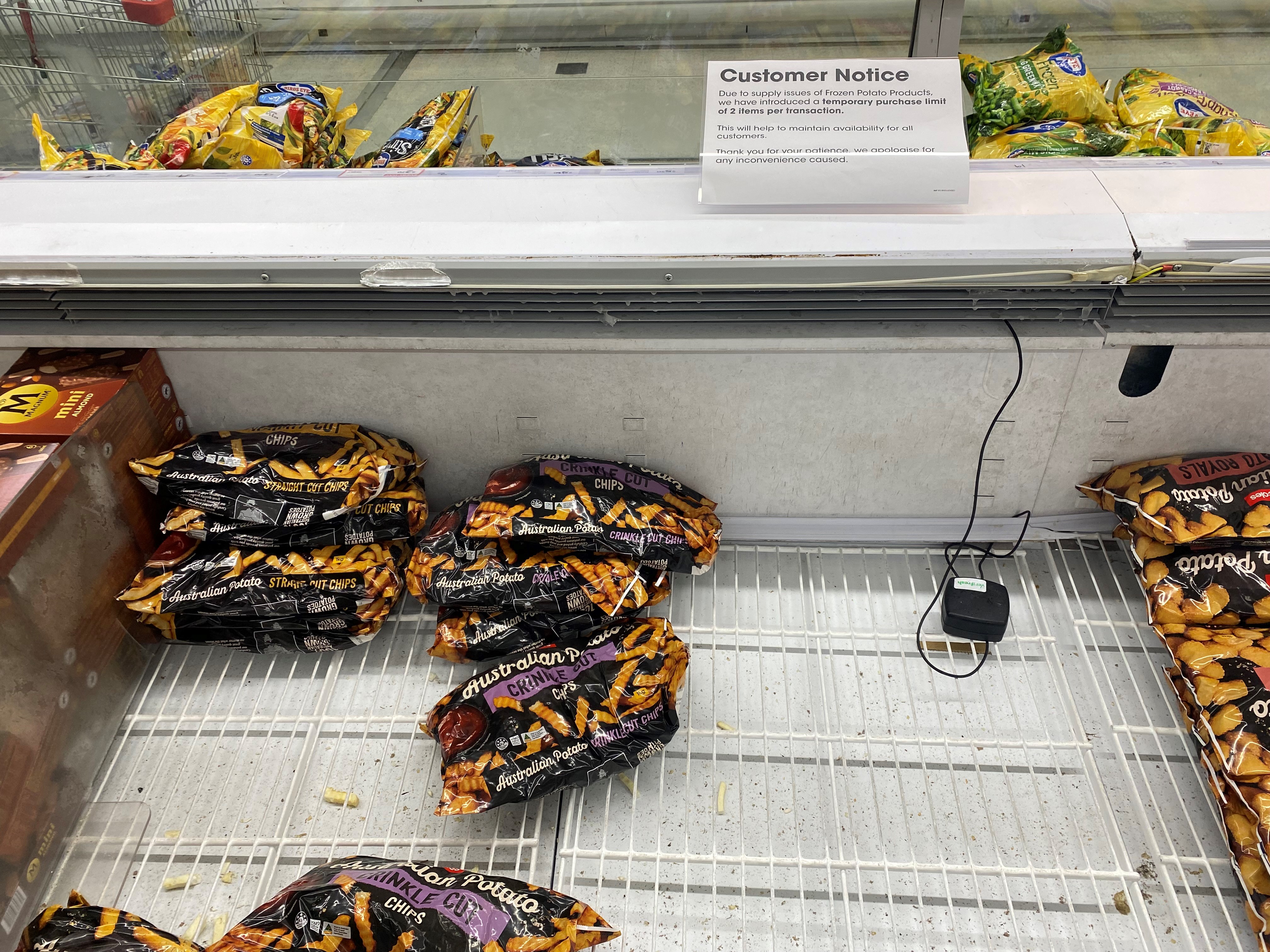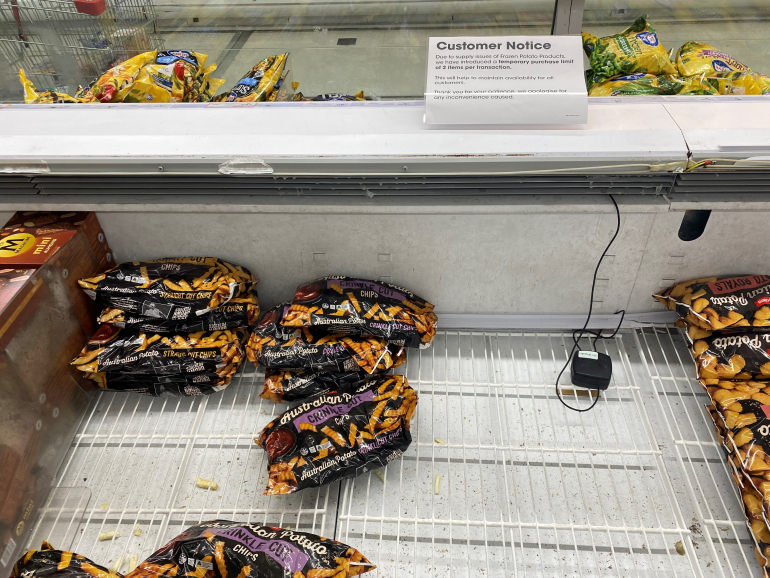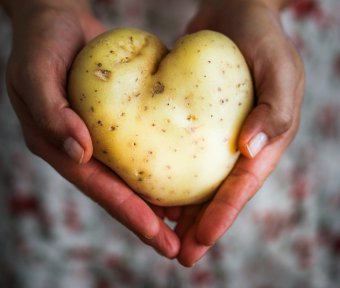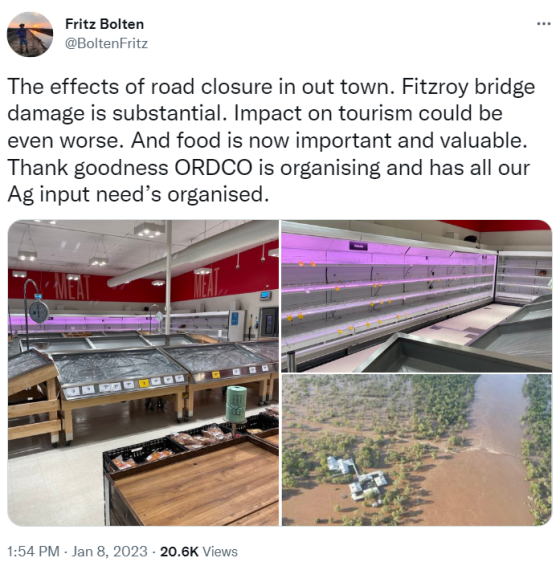
Have you tried to buy a pack of frozen chips recently, but were met by an empty frozen chip aisle? You and many Australians are experiencing the effect of a nationwide potato shortage.
News of a national potato chip shortage hit social media in October last year. Flooding and persistent rain across Australia reduced the productivity of potato producers, causing scarcity of frozen chips. The effect of this supply chain interruption can still be seen in supermarkets across Australia three months later.
The shortage of frozen chips highlights the importance of having a diverse and resilient supply chain according to UNSW Canberra Decision Support and Analytics Research Group lead, Dr Ripon Chakrabortty.
“The scarcity emphasises the necessity of early identification and resolution of any emerging difficulties between producers, distributors, and retailers, as well as efficient and effective coordination and communication between all parties involved in the supply chain,” Dr Chakrabortty said.
Fortunately, there are ways to create ‘resilient’ supply chains that ensure disruptions like the potato shortage do not affect customers in their day-to-day grocery shopping.
Supply chains can recover, and you’ll see your favourite chips return
The good news is that supply chains eventually recover. That is, you will see frozen chips return to your local supermarkets – it will just take some time.
“The length of time the Australian potato shortage will affect grocery store shelves is difficult to predict because it depends on a number of variables, including the severity of the shortage, growers' capacity to ramp up production quickly, and the effectiveness of the supply chain in moving potatoes from the farm to store shelves,” Dr Chakrabortty said.
While the problem may persist for some time, relief is in sight.
“Businesses must have backup plans in place for unanticipated supply chain interruptions,” Dr Chakrabortty said.
Building ‘resilient’ supply chains
According to Dr Chakrabortty, Australia heavily relies on a few groups of potato farmers and distributors. As a result, failures at any stage of the supply chain emerge quickly as severe shortages – the impact we are currently experiencing as potato scarcity in our supermarkets.
A robust approach to avoiding such shortages is to incorporate a ‘resilient’ supply chain.
“A resilient supply chain can swiftly adjust and recover from interruptions, whether internal problems like equipment malfunctions or external events like natural disasters or pandemics bring them on.”
Dr Chakrabortty highlights seven types of infrastructure that can be implemented in Australia to build resilient supply chains that could help with preventing future potato disruptions:
- Diversification: By having several suppliers and distributors, the supply chain may be more resilient to the effects of any supplier or distributor being unable to fulfil their responsibilities.
- Contingency preparations: Having contingency plans in place, such as substitute suppliers or logistical providers, may assist in minimising supply chain delays.
- Inventory management: Adopting efficient inventory management procedures will assist in guaranteeing that there is an adequate inventory on hand to satisfy demand if the supply chain is disrupted.
- Risk assessment: Conducting regular risk analyses to find possible supply chains hazards such as natural catastrophes, political unrest, and shifts in demand.
- Collaboration: Working with other supply chain organisations, such as suppliers and logistics service providers, can assist in foreseeing and addressing possible issues before they arise.
- Government laws and policies: Governments may also play a part by putting in policies and regulations that support a diversified and robust supply chain, such as financial incentives for homegrown manufacturing or emergency stockpiling plans.
- Sustainable agriculture: Promoting methods like crop rotation, integrated pest control, and conservation agriculture can assist in ensuring crop health and lessen the effects of weather-related problems.
Keeping your eyes peeled: can we predict future supply chain issues?
While any resource shortage is undesirable, the potato shortage has taught us that supply chains require resilience.
“Overall, strengthening a supply chain's resilience necessitates a complete strategy-heavy approach; therefore, it's critical to have a long-term, holistic viewpoint.”
Another approach to preventing disruptions is to quite literally predict future supply chain problems.
In our era of digitalisation, conventional supply chain networks are mostly digitalised.
“The best tool to forecast supply chain problems are machine learning models and statistical tools for advanced data analysis.
“Companies might find patterns and trends in past data by training a machine learning model that can point to a possible supply chain issue. This can assist businesses in foreseeing and averting upcoming disturbances,” Dr Chakrabortty said.
It is important to note that one limitation is the accessibility of historical data to base future predictions on. With climate change affecting a number of grocery networks in recent years, it is more important than ever to ensure the industry can predict future disruptions.
— Fritz Bolten (@BoltenFritz) January 8, 2023
“By successfully implementing the tools and techniques to forecast future supply chain events and ensuring the correct infrastructure and planning is in place, a complex and multi-tier supply chain can be made resilient,” he said.
Implementing resilient supply chains and forecasting disruptions will prevent severe resource shortages in the future – in this instance, potatoes. We can then return to enjoying our Australian hot chip treats, rather than concerning ourselves with when we might next get our hands on a pack of frozen chips.


